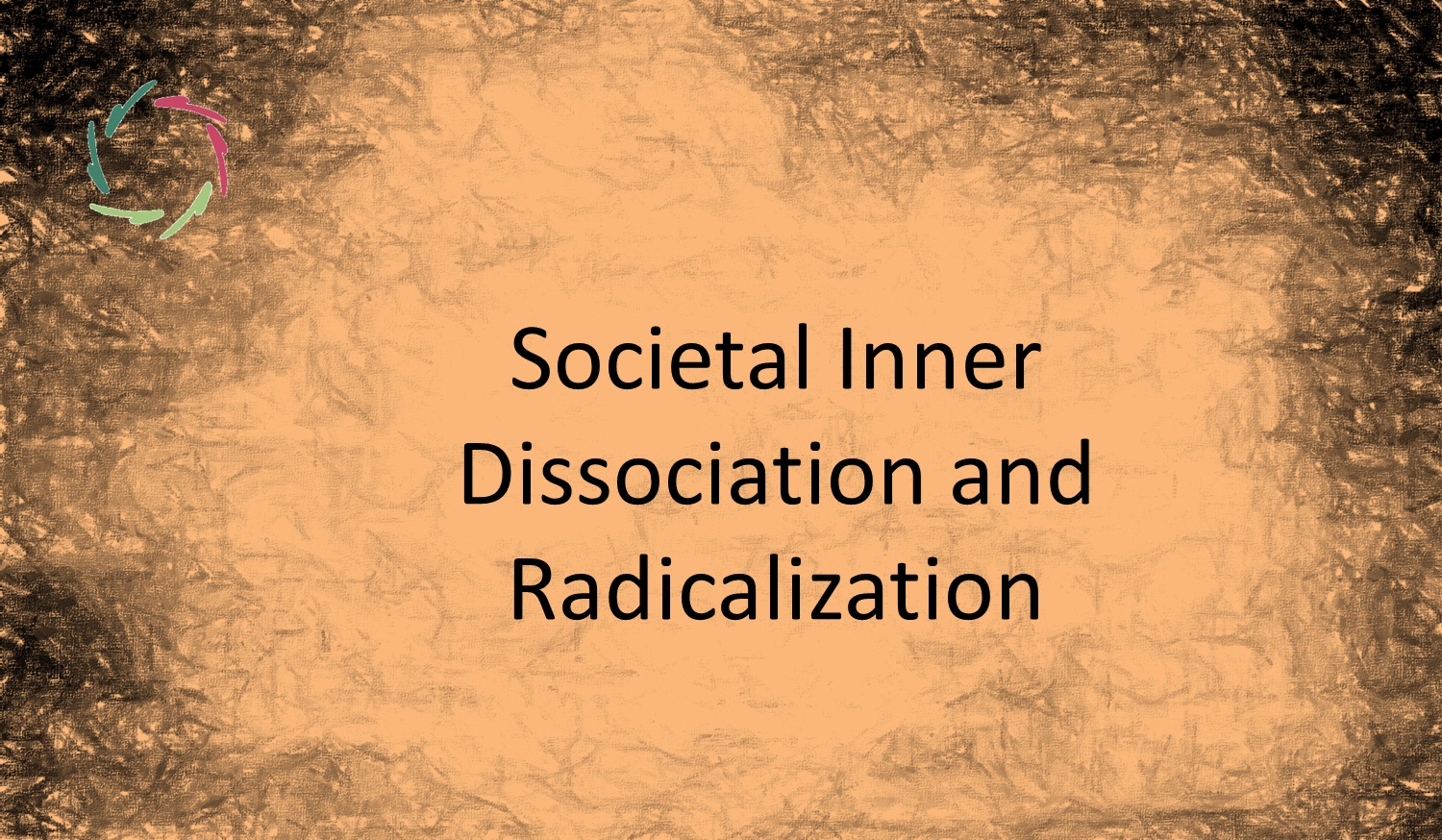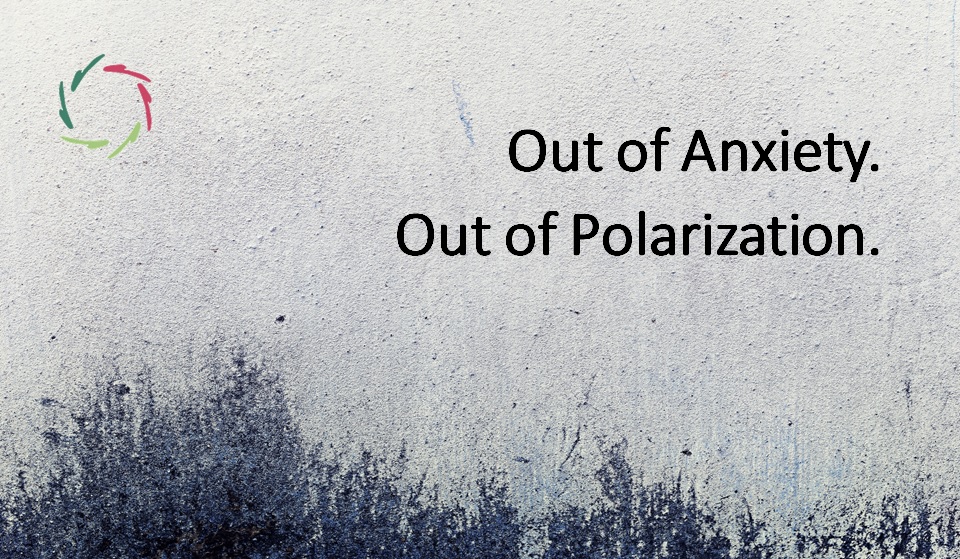Societal Inner Dissociation and Radicalization

Radicalization – the process by which individuals adopt extreme political, social, or religious ideologies – poses a significant threat to societal cohesion and global security. One of the underlying forces driving radicalization is Societal Inner Dissociation (SID).
The present blog explores how SID contributes to radicalization and suggests ways to address this issue to promote a more integrated and peaceful society. This blog is part of the *SID* series. Please read the primary blog of this series for a basic understanding of Societal Inner Dissociation (SID).
Fragmented identity and the search for meaning
Individuals experiencing SID often struggle with a fragmented sense of self, leading to feelings of alienation, purposelessness, and a lack of identity. This creates fertile ground for radical ideologies. These offer a seemingly straightforward and compelling way to resolve these inner conflicts by providing a solid sense of identity, belonging, and purpose.
SID often leads to cognitive dissonance, where individuals’ behaviors and beliefs conflict with their deeper values. Radical ideologies resolve this dissonance by offering absolute answers to complex questions, appealing to those who seek certainty in a world of ambiguity. Thus, for those grappling with SID, radical beliefs can serve as a coping mechanism. By adopting a radical identity, individuals can escape the discomfort of their dissociated state and find a sense of direction, even if it leads them down a destructive path.
Social Disconnection
SID can lead to widespread social disconnection and marginalization. When people feel disconnected from their communities or perceive themselves as being marginalized by society, they become more vulnerable to radicalization.
This breakdown of community structures also makes it easier for radical groups to recruit members by offering them a sense of belonging and a shared identity. For many, joining an extremist group is a way to rebuild these lost connections and find a place in a fragmented society.
Marginalized communities, particularly those experiencing social and economic disenfranchisement, are often fertile grounds for radicalization. SID exacerbates feelings of exclusion and resentment, driving individuals towards extremist ideologies that promise empowerment and revenge against perceived injustices.
The influence of media
Sensationalist reporting, biased narratives, and the spread of misinformation can deepen societal dissociation, fueling the radicalization process.
Traditional media, along with social media, creates echo chambers where individuals are exposed primarily to views that reinforce their existing beliefs. For those already experiencing SID, these echo chambers deepen radicalization by isolating them from alternative perspectives and critical thinking. This environment encourages the adoption of more extreme views as individuals become increasingly disconnected from broader society.
Radical groups often exploit media platforms to spread their ideologies, appealing to those who are disillusioned by societal dissociation. By controlling the narrative, these groups can craft compelling stories that resonate with individuals’ experiences of marginalization and disconnection, drawing them further into the radicalization process.
The Role of ideological absolutism
SID fosters environments where ideological absolutism can thrive. In the absence of inner integration, individuals may gravitate towards extremist ideologies that provide clear, absolute answers to complex questions. These ideologies often reject ambiguity and complexity, offering a sense of certainty that can be particularly appealing to those struggling with the uncertainty and fragmentation that SID creates.
Radical ideologies provide a structured worldview that contrasts sharply with the fragmented experiences of those suffering from SID. This certainty can be especially appealing to individuals who feel lost, directionless, or overwhelmed by the complexities of modern life.
Mitigating radicalization by addressing SID
To effectively combat radicalization, it is crucial to address the underlying SID that drives it. This involves a multi-faceted approach that includes promoting personal integration, strengthening social bonds, encouraging responsible media practices, and fostering critical thinking through education. By helping individuals achieve inner integration, the appeal of radical ideologies that offer false solutions to existential crises can be significantly reduced. Also, by fostering a sense of belonging and inclusion, societies can weaken the hold of radical ideologies.
The media has a critical role to play in combating radicalization by promoting balanced, nuanced reporting that avoids sensationalism and polarization. Responsible media practices can also prevent the spread of radical ideologies and counteract the influence of echo chambers.
Educational programs that promote understanding of complex issues and teach the value of nuance and ambiguity can help prevent the absolutist thinking that SID often engenders.
In short
We can mitigate the conditions that lead to radicalization and build a more integrated, peaceful society. The path to de-radicalization and preventing future extremism lies open.
Lisa is ready for all personal coaching ― of course, without manipulating anyone.


